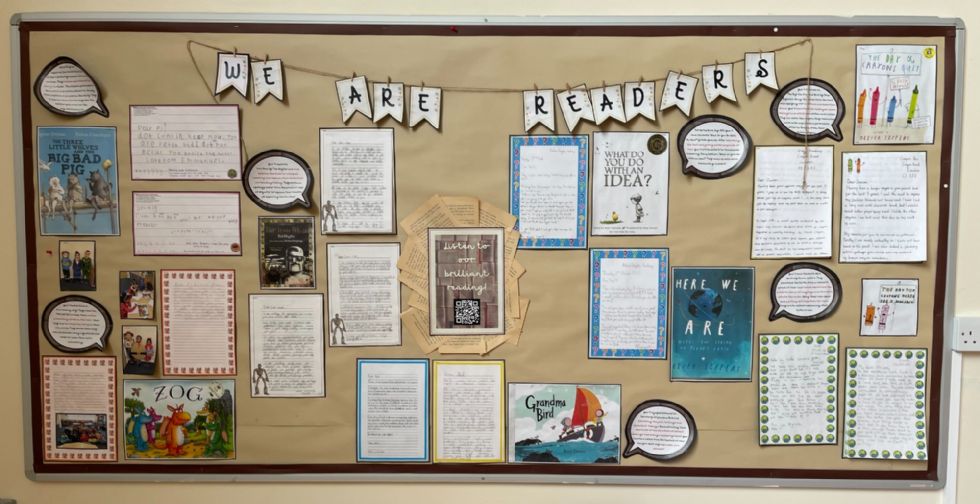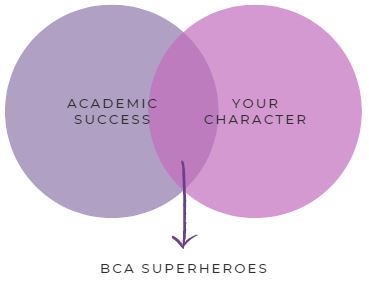Reading
Intent
Reading is at the heart of our curriculum because it unlocks learning and builds confidence. At Bishop Creighton Academy, we follow the principles of the DfE Reading Framework to ensure every child becomes a fluent, enthusiastic reader. Through high-quality phonics teaching, exposure to rich and diverse texts, and regular opportunities for whole-class reading, we help children develop strong comprehension skills and a lifelong love of books. Reading supports vocabulary growth, deepens understanding across subjects, and nurtures empathy and imagination. We believe that every child deserves to be a reader and we are committed to making that happen.
Implementation
We aim to develop pupils’ competence in the dimensions of;
- word reading
- comprehension (both listening and reading)
Skilled word reading involves both the speedy working out of the pronunciation of unfamiliar printed words (decoding) and the speedy recognition of familiar printed words. Underpinning both is the understanding that the letters on the page represent the sounds in spoken words. This is why phonics should be emphasised in the early teaching of reading to beginners (i.e. unskilled readers) when they start school.
Good comprehension draws from linguistic knowledge (in particular of vocabulary and grammar) and on knowledge of the world. Comprehension skills develop through pupils’ experience of high-quality discussion with the teacher, as well as from reading and discussing a range of stories, poems and non-fiction. All pupils must be encouraged to read widely across both fiction and non-fiction to develop their knowledge of themselves and the world in which they live, to establish an appreciation and love of reading, and to gain knowledge across the curriculum. Reading widely and often increases pupils’ vocabulary because they encounter words they would rarely hear or use in everyday speech. Reading also feeds pupils’ imagination and opens up a treasure-house of wonder and joy for curious young minds.
Reading in EYFS & Key Stage 1
We believe that all our children can become fluent readers and writers. This is why we teach reading in EYFS & Key Stage 1 through Little Wandle Letters and Sounds Revised, which is a systematic synthetic phonics programme. From Reception we follow the Little Wandle Letters and Sounds Revised progression, which ensures children build on their growing knowledge of the alphabetic code, mastering phonics to read and spell as they move through school. As a result, all our children are able to tackle any unfamiliar words as they read.
We also model the application of the alphabetic code through phonics in shared reading and writing, both inside and outside of the phonics lesson and across the curriculum. We have a strong focus on language development for our children because we know that speaking and listening are crucial skills for reading and writing in all subjects.
We teach reading practice sessions three times a week. These sessions:
- are taught by a fully trained adult to small groups of approximately six children
- use books matched to the children’s secure phonic knowledge using the Little Wandle Letters and Sounds Revised assessments and book matching grids on pages 11 to 20 of ‘Application of phonics to reading’
- are monitored by the class teacher, who rotates and works with each group on a regular basis.
Each reading practice session has a clear focus, so that the demands of the session do not overload the children’s working memory. The reading practice sessions have been designed to focus on three key reading skills:
- decoding: teaching children to use phonic knowledge to read words
- prosody: teaching children to read with understanding and expression
- comprehension: using dialogic talk to help children to understand the text.
In Reception, these sessions start in week 4 of teaching at the latest. Initially, children will read wordless books. In these sessions, children review GPCs and are taught blending using teacher-led blending. Once children can blend, they progress onto decodable books matched to their secure phonic knowledge. Children read each book three times to develop phonemic awareness, vocabulary and comprehension as well as book behaviours.
In Year 2, we ensure children complete reading the core programme decodable books (up to Phase 5 Set 5). To exit the programme, we complete the final fluency assessment to ensure children can read with adequate speed and accuracy: approximately 60 words per minute with 90%+ accuracy.
Reading in Rapid Catch-up lessons mirrors the core programme. Children following the Rapid Catch-up programme are taught to read using the 7+ fully decodable books. These follow the same progression as the core programme but are more appropriate for older readers.
*See Phonics page for more information regarding reading in EYFS.
Key Stage 2 Reading
In Key Stage 2, our whole class reading lessons are designed to ensure all pupils access high-quality texts and develop strong comprehension skills. We use carefully structured sessions to teach vocabulary, fluency, and inference through rich discussion and targeted questioning, enabling every child to engage deeply with the text and build confidence as a reader.
All Key Stage 2 classes take part in five dedicated reading lessons each week, following a consistent and purposeful structure. Pupils record their responses and reflections in their red reading journals, supporting active engagement and accountability. Each lesson includes a “Laser Focus” task - targeted activities designed to address specific reading skills identified through question-level analysis of formal assessments. These short, focused tasks help pupils strengthen specific reading domains in addition to specific question types ensuring that reading instruction is both responsive and impactful.
Throughout the academy, the use of Accelerated Reader aims to foster reading for pleasure and independent reading, with children selecting books based on their interests as well as their ability levels. Regular assessment ensures children's needs are matched precisely and all children are heard read on a regular basis to adults in school, with the most vulnerable 20% of readers carefully monitored. Experiences such as author visits and celebrating World Book Day continue to nurture a love of reading and books.


